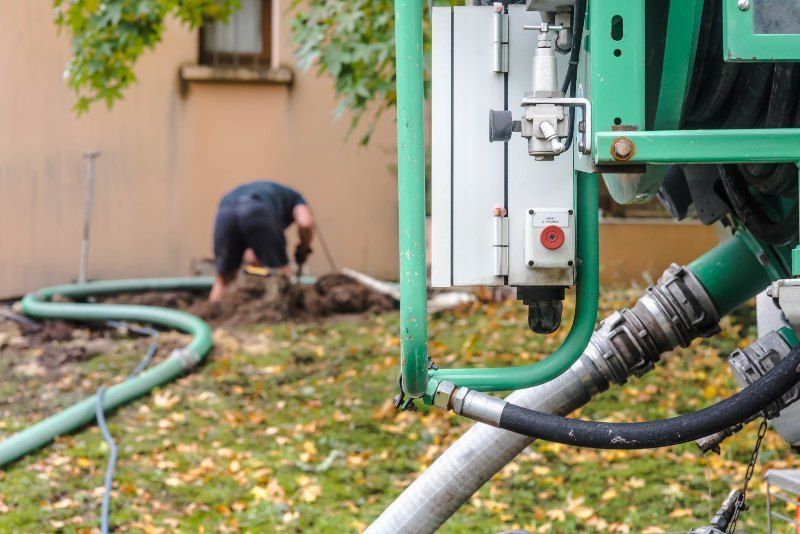Water Removal from Oil Tanks in Norfolk, VA
Reliable Emergency Water Removal from Oil Tanks Service
For more than 40 years, Bogue Oil Co has been an expert provider of heating oil services, including emergency water removal. Each of our technicians on the team is dedicated to providing the community with safer and more environmentally safe options when it comes to heating. Our heating services are the heating options of the future. With incredible efficiency, higher burning temperatures, less risk, and increased environmentally friendly, Bogue Oil Inc is your choice.
Sometimes water can get into your heating tank, and you’ll need expert emergency water removal services. Our team at Bogue Oil Co can provide emergency services so that your heater can be back to properly running and keeping your home warm. Give us a call, and we will be there.

The Importance of Water Removal in Oil Tanks
Water removal in oil tanks is crucial to keep your heating tank running strong for a long time. Between rainwater, condensation, and other routes water may take into your oil tank, many things can cause this water contamination. While oil tanks are built to resist many contaminates, they are not impenetrable. Water contamination is a common problem that heating oil tank owners deal with. To help counter this, our team at Bogue Oil Co has created a reliable process for identifying water in your tank and quickly removing that water. If you notice water in your tank, don’t hesitate. Give us a call right away.
Potential Consequences of Water Contamination
Professional water removal service is crucial to protect and maintain the condition of your oil tank. Water inside your heating oil tank can cause serious consequences for your heating system, including:
- Bacteria – Water sitting in your heating oil tank can be a breeding ground for bacteria. Bacteria creates a slimy sludge that settles at the tank's bottom. Bacteria can release acid that results in the corrosion of your heating oil system. Corrosion often leads to more serious problems, including leaks. Water removal service is a much more affordable and noninvasive process than fixing the results of water and bacteria.
- Rust – Water and metal often result in corrosion, which we call rust. With water in the tank, it can corrode the inside of the tank. This rust eats away at the tank, leaving holes and leaks that lead to the quick demise of your system.
- Freeze – Oil has a much lower freezing point than water which means you don’t have to worry about your oil freezing outside unless in extremely cold temperatures. Water, on the other hand, freezes at 32 degrees Fahrenheit. If there is water in your tank outside, it will freeze and cause blockages in the oil supply. This results in the complete loss of heating services which can be dangerous, especially in the winter.
Causes of Water Accumulation in Oil Tanks
While heating oil tanks are tough and strong, they are not impenetrable. There are two main causes of water accumulation in oil tanks:
- Condensation – Condensation is a common cause of water accumulation, especially in the spring and the summer. It is even more common with tanks that are only partially filled. When cold water meets a warmer surface, condensation forms. When it gets warmer outside, the inside of your tank is cooler than the air on the outside. As the condensation builds up, a small layer of water appears on the bottom of your heating oil tank.
- Rainwater – Rainwater is another common cause of water accumulation. Especially when the oil tank is aging or hasn’t been properly maintained. This can result in small openings that can lead rainwater to enter the oil tank. Some spots that commonly let water in because of age or needed repairs are:
- Ill-fitting filler caps
- Faulty/corroded seals
- Damaged vents
- Cracks or holes
Water Removal Process
There are three main ways that we provide water removal depending on the severity of water accumulation in your tank:
- Drain the Tank – Some tanks have a water release valve at the bottom that allows water to leak out. This usually lets out some oil as well and should be done carefully. Our team can drain your oil tank and put it in a holding tank for more serious water accumulation.
- Pump the Tank – Another option we use in certain situations is to siphon the water out of the tank. Our advanced professional tools include an oil water separator tank that can safely remove any water from the oil and return the oil to your tank.
- Absorb the Water – Another option for smaller amounts of water is to use a substance that naturally absorbs water, whether an alcohol-based dispersant or a water-absorbent material.
How to Prevent Water Accumulation
There are several ways you can prevent further or repeated water accumulation. By following these tips or hiring our services at Bogue Oil Co to help, you can reduce stress and future repairs. Prevent water accumulation by:
- Test your tank
- Close the lids on your tank
- Give your tank a once over
- Replace your outdated tank
- Absorb water from your tank
What to Expect from Us
When you request our services or contact us for more information, you can rely on our team to prioritize you and your needs.

Founded in 1956, Bogue Oil, Inc. has been providing premier heating oil, fueling & HVAC services to Norfolk, Portsmouth & Chesapeake, VA, residents. Get in touch with us today for details!
Contact No: (757) 693-6081
We Are Open 24/7
